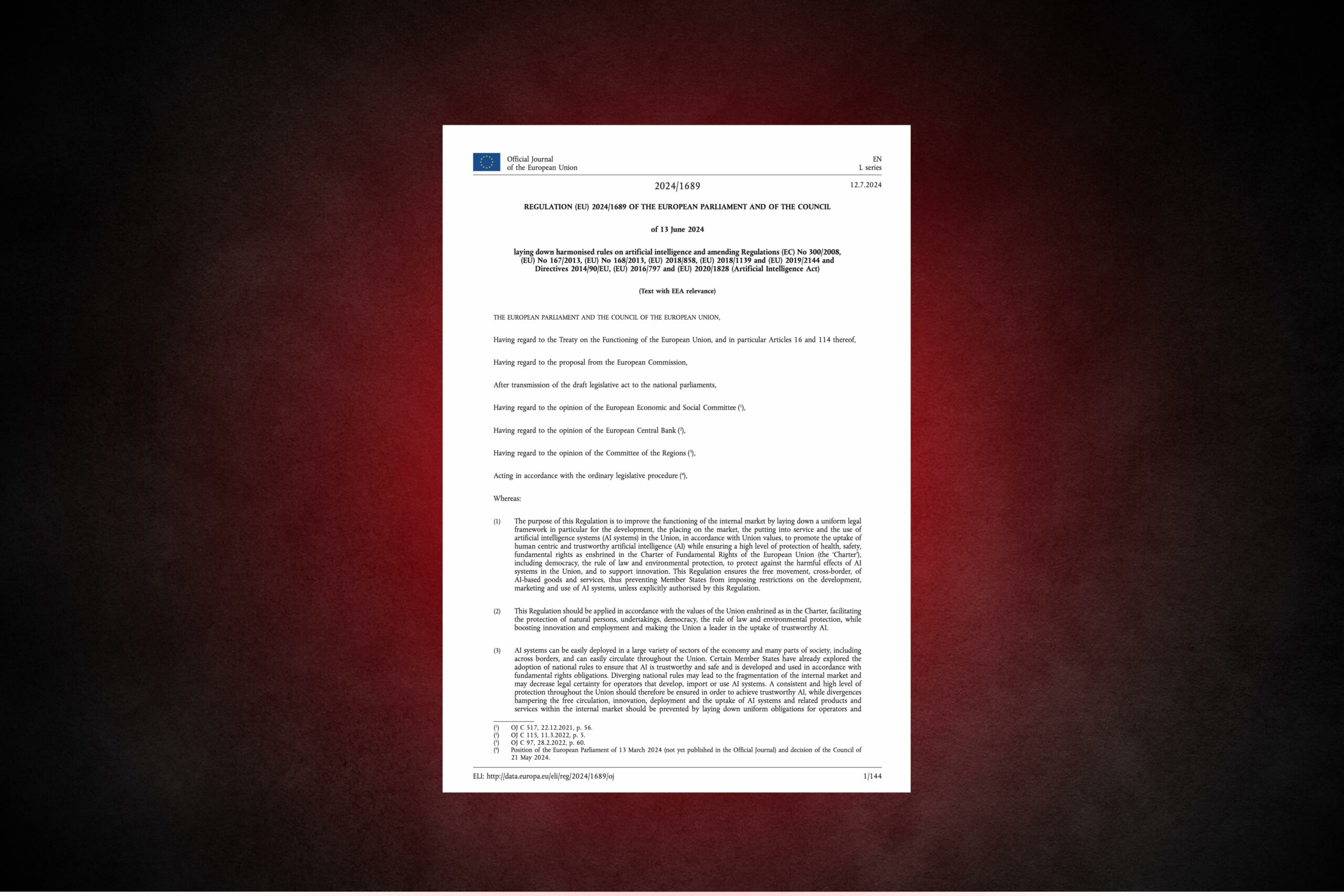Dear readers,
As previously announced, I am incredibly happy and honored to publish guest articles written by several of the world’s most renowned antitrust scholars every month of the year 2020. The one for May is authored by Richard Whish, Emeritus Professor at King’s College London. In it, Richard explores whether competition lawyers harm welfare, exposing in turn different stratagems and asking who they benefit. I am confident that you will enjoy reading it as much as I did. Richard, thank you very much!
All the best, Thibault Schrepel
****
Do Competition Lawyers Harm Welfare?
I was delighted to be invited by Thibault Schrepel to write a guest article for the Revue Concurrentialiste. I was told that the piece should be provocative, topical and original writing; and that I could write in ‘blog format’, more informally than the norm.
I follow in the illustrious footsteps of Professors Hovenkamp, Crane, Kovacic and Fox, who have discussed issues of great importance to competition policy today: the meaning of consumer welfare; democracy and monopoly; power, trust and distrust. My headline is much more prosaic: ‘do competition lawyers harm welfare’? I do not intend to define welfare: Professor Hovenkamp in his January article has reminded us of the complexities of the term. I would simply ask the reader to accept that competition law is intended in some sense to enhance welfare; or at the very least that it is not intended to harm it.
I think, as required by Thibault, that my title is provocative: perhaps even a little sensational. A headline is designed to grab attention. But the question that I wish to pose is whether there are occasions on which competition lawyers act in ways that may be injurious to a properly-functioning system of competition law.
A successful competition law regime consists of many parts including the legislature, the executive, public authorities, universities, businesses, their representative associations, trades unions, consumer bodies, and a well-informed, critical and unbiased media. Numerous human skills are required for a competition law system to function well, including expertise in political science, economics, accountancy, public and business administration and IT to name a few. But of course, in any system of competition law, a significant role will be assigned to the competition lawyers.
My career in competition law and policy has taken me to all corners of the world: well over fifty countries. During these travels, I have been able to witness in a variety of fora – private practice, conferences, universities, competition authorities, courts – the enormous competence of competition lawyers worldwide; indeed often their brilliance. For the most part competition lawyers love their subject – its combination of the practical with the theoretical; its connection to economics, politics, public administration; its topicality; its diverseness; ultimately its importance as a key component of a market-based system. Competition lawyers know that it is possible for market power to be abused, and that competition law is a necessary corrective; an instrument that can help to save capitalism from itself.
However, what has struck me when observing how competition law systems function around the world is that there are certain features of the behaviour of competition lawyers that seem to militate against competition law functioning as it should do. I entirely understand a lawyer’s commitment to his or her client (whether the ‘client’ is a competition authority, a complainant or defendant); and that a lawyer will always be determined to get the ‘right result’ for a client: poor procedure must be challenged; fair play is essential; bad arguments must be exposed; wrong decisions should be corrected. All this is healthy. However, the enforcement of competition law – typically in the form of a competition authority taking action against firms for breaching the antitrust rules or investigating mergers that might substantially lessen competition – is not business-to-business litigation between firms asserting private law rights and obligations. Competition law enforcement is about achieving the ‘right’ result in a particular case in terms of welfare as a public good. I hope that competition lawyers would agree with this, but I wonder whether it is something that always guides them in their counsel.
These thoughts have been in my mind for many years, more to the back than the front. However, they surfaced recently when I re-read David Lewis’s superb book Thieves at the Dinner Table (2012). In it, Lewis reflects on the many years in which he played a major part in the evolving system of competition law in South Africa, culminating in his period as Chairman of the Competition Tribunal from 1999 to 2009. Lewis often acknowledges the formidable intelligence and advocacy skills of some of the lawyers who appeared before the Tribunal during his chairmanship.
But Lewis, an economist, does not conceal his frustration at much of what he saw. He refers to lawyers “whose quaint and pompous phraseology I have come to know so well” who urge on competition enforcers and adjudicators the requirement for administrative fairness “even when invoked, as is more often than not the case, by those for whom high-minded principles mean little more than an opportunity to seize strategic advantage in litigation”. He remarks that “[i]t’s little wonder that the law and the Constitution – and its accompanying high-minded principles of fairness and justice – are held in such low regard by the public when what is most frequently on display is the cynical distortion and abuse of these principles by well-heeled lawyers representing powerful clients in business and politics”. He discusses the case of Ansac, the American Natural Soda Ash Corporation, which the Competition Commission referred to the Tribunal in 1999’. “[T]his was the ultimate lesson in obstructive legal stratagem. Ansac’s legal team managed to drag an incontrovertible cartel case through every court in the land for ten years, whereupon Ansac conceded, hours before the conclusion of the final trial before the Tribunal, precisely what it had been accused of in the first place” (page 59).
Lewis was particularly frustrated at the technical niceties and legal stratagems deployed by competition lawyers in proceedings before the Tribunal. In some competition law cases, the economic stakes are incredibly high. A large company will be willing to pay huge sums of money, for example to lawyers, economists, public relations agencies and lobbyists, to protect a practice or to promote a merger that is privately profitable. Playing the legal system is one way of protecting a monopoly profit, and competition lawyers are obviously incentivised, by huge fees, to participate in this rent-seeking. In such circumstances, it is inevitably difficult for a lawyer to consider the wider purpose of competition law.
A separate point is that there appears to be something in the nature of lawyers that suggests that winning an argument is more important than reaching the right result in the broader good. I recall the occasion on which the UK Competition Appeal Tribunal ruled, in Bettercare (2002), that the North & West Belfast Health Trust was an undertaking, and therefore subject to the Competition Act 1998; the OFT had earlier decided that it was not. There were lawyers at the OFT who wanted to appeal to the Court of Appeal because the CAT was wrong in law (that is to say disagreed with them). It was not easy to persuade them that the CAT judgment was actually helpful to the OFT, in that it expanded the jurisdictional reach of the legislation.
So let us think of the “technical niceties and legal stratagems” that competition lawyers might deploy in a particular case. There are more than I can discuss in my allotted word count!
Delay
In Thieves at the Dinner Table Lewis says that “I recall Ansac’s counsel once telling me that ‘a case well managed can last forever’”. It is well known that competition authorities worldwide receive endless complaints about their procedures; these of course require careful attention – a diversion of resources from the substance of the case – not least because of the ever-present fear of judicial review. It should be added that competition authorities themselves are often guilty of inordinate delay in progressing cases, although I am not sure that this is due to competition lawyers.
In the UK, recently I heard a reference to ‘Friday’ letters: letters sent by practitioners on a Friday afternoon to the CMA raising a procedural complaint, which will hamstring the authority when work recommences on Monday. Perhaps this is an urban (or a competition village) myth, but it is not impossible to believe that competition lawyers might use this device in the interests of delay. In a recent UK case, the CMA was investigating a complaint of excessive pricing by Concordia, subsequently Advanz Pharma, a pharmaceutical company. Advanz sought a judicial review to have the CMA’s investigation stayed pending the outcome of litigation in an unrelated case, that might yet take a considerable time to resolve. The Court robustly rejected the application.
I wonder if the application would have been made in the first place if the CMA had imposed interim measures capping the price of the drug in question pending the outcome of its investigation? The incentive, then, would presumably have been for the case to be completed as quickly as possible. Indeed – and this will certainly be provocative – I wonder if there is an argument more generally in favour of the use of interim measures in abuse cases around the world, where often a relatively weak and under-resourced competition authority locks horns with a powerful dominant undertaking, whose incentive is to protect the practice which is alleged to be abusive for as long as possible. The use of interim measures might be particularly appropriate in those jurisdictions where it is not possible for a complainant to start a standalone action in court, but rather is entirely dependent for a remedy on the competition authority.
One obvious way of delaying enforcement action is to raise constitutional objections, or to argue that the competition authority lacks jurisdiction because a particular sector is within the jurisdiction of a bespoke regulator. Of course, constitutions and legislation have to be properly understood and applied, and there are issues of great legal complexity. But this territory is fertile ground for ingenious legal arguments and provides endless opportunity for delay. In Mexico, Carlos Slim had dominated the telecommunications market since taking control of the former state phone monopoly Telmex in the 1990s. Article 131 of the 2014 telecommunications law was a key pillar of reforms intended to loosen its dominance, but in 2018 the law was declared unconstitutional as Congress had exceeded its authority by removing the right of the Federal Telecommunications Institute to establish interconnection fees; this delayed reform of the sector for many years.
I have seen these kind of wranglings throughout the world. In India, the design of the Competition Commission itself was litigated in the Supreme Court before the Commission had even begun to enforce the law on constitutional objections. The law was passed in 2002 but entered fully into force only in 2009 following an amendment in 2007.
In the early years of the regime in South Africa, the Supreme Court of Appeal ruled that the Competition Act did not apply to mergers in the banking sector but were solely subject to the Banks Act and the Minister of Finance. This was an interpretation of Section 3(1)(d) of the Competition Act, which applied to all economic activity except “acts subject to or authorised by public regulation”. Lewis remarks that an eminent South African lawyer had referred to section 3(1)(d) as “the ‘Pajero clause’,1UK lawyers will recall that section 60 of the Competition Act 1998, requiring consistency in its application with the principles of EU law ‘so far as is possible having regard to any relevant differences’ was referred to as the Bill passed through Parliament as the ‘Klondike clause’ as a result of the gold, in the form of fees, that lawyers would be able to earn from it. the clause that would generate the sort of fees that enabled lawyers to buy luxury 4×4 vehicles”. Section 3(1)(d) was subsequently repealed.
Competition lawyers are adept at achieving delay when the victims of anti-competitive behaviour seek damages for the harm they have suffered. In the EU system, these claims are often ‘follow-on’: the European Commission has already adopted a decision establishing that there was a cartel, and the claimant is entitled to rely on this as proof of the infringement. However, a defendant can seek to delay the litigation in numerous ways, not least by arguing that the court in which the action has been started lacks jurisdiction. The Trucks decision (2010) has led to two preliminary references to the Court of Justice under the Article 267, Trans-Tibor (2019) and Volvo (pending).
Human rights
The disasters that occurred in Europe in the middle of the twentieth century begat the European Convention on Human Rights, the principles of which have been embraced by the European Union. Human beings in Europe have a legal right, for example, not to be tortured, or to confess to illegal conduct under the threat of torture. This has been one of the great achievements of post-war Europe. However human rights legislation has spawned a veritable industry, from which lawyers have derived substantial fees. The authors of the ECHR would probably have been surprised at the frequency with which major multinational corporations, with access to the finest and most expensive competition lawyers in the world, have invoked their ‘human rights’ when, for example, asked by a competition authority to answer a question that might be self-incriminating.
In Volkswagen v Commission (2002) Advocate-General Ruiz-Colomer explained that the human rights that have evolved to protect individuals from an overweening state must be different from the rights of undertakings subject to competition law. “To accord such offenders the same procedural safeguards as those accorded to the most needy individuals, apart from being a mockery, would entail, essentially, a lower degree of protection, in this case economic protection, for the individual as the main victim of anti-competitive conduct. I, therefore, consider it important that the procedural rules be adapted to the specific field of competition”. The same point has been made by the European Court of Human Rights, most recently in SA-Capital Oy v Finland (2019), where it recognised the need for a distinction to be made as to the protection to be afforded to natural persons in an obvious, or ‘hard-core’, criminal case and the protection afforded to undertakings under investigation by a competition authority.
Appeals
I read all the appeals in the Luxembourg courts and in the UK; I also try to keep abreast of what is happening in other jurisdictions. Of course, it is the clients that choose to appeal, not their lawyers; and clients may have various reasons for appealing. However it is lawyers that advise clients on the points that might be appealed, and I am often surprised at what appears to me to be the hopelessness of some of the points taken; also in some cases at the number of grounds of appeal. I have always thought that a few really strong grounds of appeal would be more likely to convince a court than a multiplicity, in which the good ones might be lost among the weak ones.
However, I regularly see appeals in which everything, including the proverbial kitchen sink, has been included. This sometimes irks the court in question, as can be seen from critical comments made by the General Court in Atlantic Container v Commission (2003) and by the Court of Justice in Telefónica v Commission (2014). In the former, the appeal was ultimately successful and the decision in question annulled. However, the Court decided to order Atlantic Container to bear its own costs in circumstances where “each [of four] applications is some 500 pages long whilst the annexes make up approximately 100 files – and even if some of the pleas they contain have been upheld they are for the most part unfounded, and their number is so great as to amount to an abuse”. In the Telefónica case AG Wathelet was critical of the appeal “which is formulated in a confused and poorly structured manner, is extremely long — the French translation of the appeal amounts to no fewer than 133 pages in single spacing and contains 492 paragraphs — and repetitive, with several hundred grounds of appeal, sub-sections, complaints, arguments and elements of arguments”.
It should be acknowledged that, in the EU, the rule that an appellant cannot claim the benefit of a point that it has not itself raised in its appeal – ‘ne ultra petita’ – must encourage points of appeal that wise competition lawyers might prefer not to take: this can be seen in the judgment of the Court of Justice in British Airways (2017).
Third-party challenges to mergers
David Lewis is scathing at times about third parties who challenge mergers for their own private gain rather than as guardians of competitive markets: he questions whether the Tribunal was too indulgent to such interveners, no doubt as a result of the pressures brought to bear by competition lawyers threatening to appeal if their rights were not observed. I would reflect here on a similar indulgence shown to third parties by the competition law regimes in both the EU and the UK (in contradistinction to the position in the US). Two obvious examples would be the challenge by IMPALA against the clearance in 2004 of Sony/Bertlelsman: it took four years for the Court of Justice to decide in 2008 that the clearance was legitimate. KPN successfully challenged the Commission’s conditional clearance of Liberty Global/Ziggo in October 2014; the decision was annulled in October 2017 requiring a further investigation by the Commission which ended up – with the same result – in 2018.
Conclusion
I hope that, having written this ‘provocative’ article about the role of competition lawyers, I will retain the very many friendships that I have made in the global competition village. For the avoidance of doubt, I should point out that the “thieves at the dinner table” of David Lewis’s book were the cartelists, not their lawyers!
Prof. Richard Whish
***
Recommended citation: Richard Whish, Do Competition Lawyers Harm Welfare?, CONCURRENTIALISTE (May 11, 2020)
Read the other guest articles over here: link








